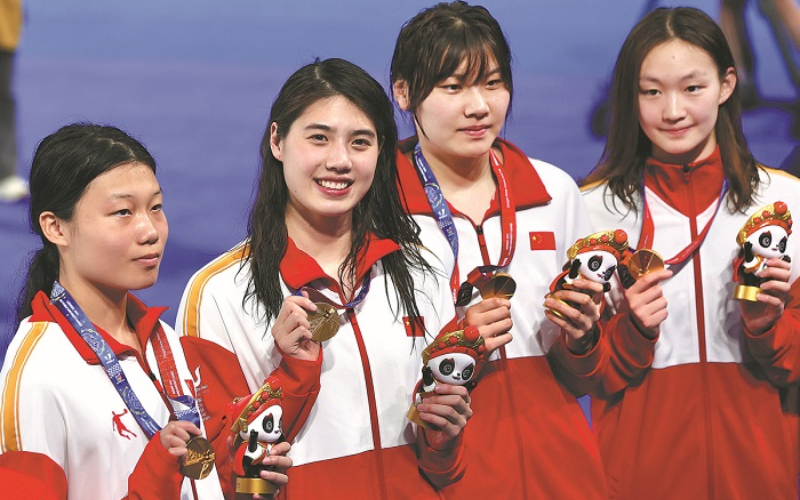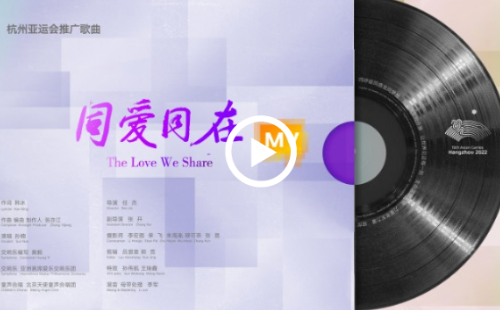Principled partnerships

LI MIN/CHINA DAILY
With the CPC at the helm China has forged strong longstanding partnerships with African countries
On the occasion of its 100th anniversary of the Communist Party of China, African countries will convey their heartfelt congratulations to the CPC on its phenomenal achievements, which have paved the way for the country's progress toward a "moderately prosperous society in all respects" and the national rejuvenation of the Chinese nation.
This should come as no surprise. China and African countries have longstanding, traditional and fraternal ties that stretch back over many decades.
In fact, the exchanges between Africa and China have evolved over several thousand years.
But it was only after the founding of the People's Republic of China in 1949, with the CPC at the helm, and after Africa had begun to rid itself of the burden of colonialism in the 1950s and 1960s that contact between China and Africa was actively resumed, with cooperation gaining significant momentum in the ensuing decades.
There have been many highlights on this road of solidarity, friendship and cooperation. In April 1955, the historic Bandung Conference marked the start of a new chapter for cooperation between China and Africa. Twenty-five countries participated in the conference which shaped the future of Afro-Asian relations based on anti-colonial solidarity and South-South cooperation.
The Five Principles of Peaceful Coexistence, put forward by then premier Zhou Enlai, were central to the deliberations at the Bandung Conference. These five principles are mutual respect for sovereignty and territorial integrity, mutual non-aggression, non-interference in each other's internal affairs, equality and mutual benefit, and peaceful coexistence.
To this day, these principles still serve as the underlying principles of the strengthening friendship and partnership between African countries and China. After the Bandung Conference, African countries and China put into effect a new type of partnership, characterized by political equality, mutual trust, mutually beneficial economic cooperation and cultural exchanges. China strongly supported African countries in their quest for independence, their fight against colonialism and their pursuit of development.
Throughout this period the CPC reached out to people in Africa, displaying a strong sense of friendship and solidarity toward the continent. From the 1950s onwards an increasing number of exchanges between the CPC and African political parties also began. Many African national liberation movements sent delegations to visit China to seek political, moral and material support as well as training. Most of these delegations forged strong ties with the CPC which later stood Africa and China's cooperation in good stead. Through these interparty exchanges the CPC formed a greater understanding of Africa and improved its general communication with the continent while the African political parties learned invaluable lessons from China's development experience.
Given all these constructive developments, the friendship and cooperation between Africa and China continued to grow apace, cemented by regular high-level contact between African and Chinese leaders. The momentous visits by Chinese leaders to a large number of African countries contributed significantly to the growing and mutually beneficial partnerships. In 2000, cooperation between African countries and China was given a "game-changing" boost with the establishment of the Forum on China and Africa Cooperation, which has elevated the two sides' cooperation to a higher, more comprehensive and strategic level.
Africa has embraced President Xi Jinping's vision of building a China-Africa community with a shared future, which connects the development of Africa with that of China and aligns the interests of the Chinese people with those of the African people.
Africa knows from experience that China is prepared to share its best practices and to help the continent realize its dream of "The Africa we want". In this context, Africa and China are bound to pursue cooperation in an enhanced and strategic manner, aligning the Belt and Road Initiative with the African Union's Agenda 2063.
It is critical that African countries have the ability to pursue their own chosen development paths and hence cooperate with China in a manner that increasingly enhances Africa's key priorities. Thus it is imperative that projects on the continent, based on Chinese financing and support, are clearly defined and linked to concrete benefits for Africans. African countries will have to approach China and their other international partners in a more coordinated, collective and strategic manner than hitherto.
This will necessitate the continued alignment of the AU's Agenda 2063 goals with the Belt and Road Initiative and the FOCAC action plans, with an enhanced focus on practical outcomes for sustainable economic growth. The African Continental Free Trade Area will serve as a powerful catalyst, creating opportunities for trade expansion through the promotion of intra-Africa trade, as well as for investment and much needed industrialization which China can avail itself of.
Many of the issues facing both China and Africa will be on the agenda of the forthcoming FOCAC meeting in Senegal, which represents the next important building block in the increasingly vital and growing strategic partnership.
Africa is confident that the CPC and China will "listen" to African voices, to jointly map the way forward for their relations thus giving tangible content to the words of President Xi: "That China will treat Africa with sincerity, that China will seek to deliver real outcomes in conducting cooperation with the continent, resolve problems that may occur with good faith and continue to build a close bond of friendship."
The author is a senior research fellow at the Institute of African Studies at Zhejiang Normal University and a former senior diplomat in the South African Department of International Relations and Cooperation. The author contributed this article to China Watch, a think tank powered by China Daily. The views do not necessarily reflect those of China Daily.





 play
play